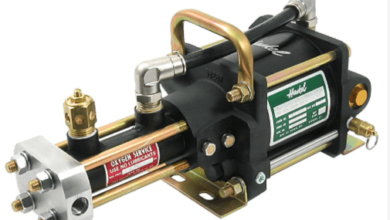Boiler Efficiency: Tips for Maximizing Energy Savings

Achieving optimal boiler efficiency is crucial for reducing energy consumption and operational costs while maintaining reliable heat production. In this comprehensive guide, we explore practical tips and strategies to maximize energy savings through improved boiler efficiency.
Understanding Boiler Efficiency
Boiler efficiency refers to how effectively a boiler converts fuel into usable heat. Higher efficiency means less fuel is required to produce the same amount of heat, resulting in lower operating costs and reduced environmental impact. Let’s delve into key strategies to enhance boiler efficiency.
Tips for Maximizing Boiler Efficiency
Regular Maintenance and Inspections
Regular maintenance is essential to ensure peak boiler performance:
- Cleaning and Inspection: Regularly clean boiler components, including heat exchangers, burner assemblies, and flue passages, to remove soot, scale, and other deposits that can decrease efficiency.
- Annual Inspections: Schedule annual inspections by qualified technicians to check for leaks, corrosion, and proper operation of safety controls. Addressing issues promptly can prevent energy waste and costly repairs.
Optimize Combustion Efficiency
Efficient combustion is crucial for maximizing heat transfer and minimizing fuel waste:
- Burner Adjustment: Regularly adjust burners to achieve optimal combustion efficiency, balancing air and fuel ratios to reduce excess air and improve heat transfer.
- Oxygen Trim Systems: Consider installing oxygen trim systems to continuously monitor and adjust combustion air and fuel ratios based on real-time conditions, optimizing efficiency.
Upgrade to High-Efficiency Burners
Modern high-efficiency burners offer significant improvements over older models:
- Condensing Boilers: Consider upgrading to condensing boilers that recover heat from flue gases, increasing overall efficiency by utilizing latent heat that would otherwise be lost.
- Low-NOx Burners: Install low-NOx burners to reduce nitrogen oxide emissions while improving combustion efficiency, complying with environmental regulations and enhancing operational efficiency.
Insulate Pipes and Components
Proper insulation prevents heat loss and improves system efficiency:
- Pipe Insulation: Insulate steam and hot water distribution pipes to minimize heat loss during transportation, ensuring that heat reaches its intended destination without unnecessary waste.
- Boiler Casing Insulation: Insulate boiler casings and doors to reduce standby heat loss, especially for boilers that operate intermittently or seasonally.
- Read also: Bridging Distances and Technologies
Implement Boiler Sequencing
Optimize boiler operation through intelligent sequencing and control strategies:
- Load Matching: Use multiple boilers with sequencers or controllers to match heating loads more efficiently, cycling boilers on and off based on demand to prevent energy waste during low-demand periods.
- Outdoor Temperature Reset: Implement outdoor temperature reset controls to adjust boiler water temperatures based on external conditions, optimizing efficiency throughout changing seasons.
Monitor and Analyze Performance Data
Utilize data analytics to track boiler performance and identify opportunities for improvement:
- Energy Management Systems: Install energy management systems that monitor boiler operations, fuel consumption, and energy usage patterns in real time. Analyze data to identify inefficiencies and implement corrective actions promptly.
- Performance Benchmarking: Compare boiler efficiency metrics against industry standards and benchmarks to gauge performance and prioritize efficiency enhancements.
Educate and Train Personnel
Empower staff with proper training and awareness of energy-saving practices:
- Operational Training: Provide training for boiler operators on efficient operating practices, maintenance procedures, and energy conservation strategies to optimize daily operations and prolong equipment lifespan.
- Behavioral Awareness: Encourage energy-saving behaviors among facility occupants, such as turning off unnecessary equipment and minimizing heat loss through doors and windows.
Consider Renewable Energy Integration
Explore renewable energy options to supplement boiler operations and reduce reliance on fossil fuels:
- Biomass Fuel Systems: Integrate biomass fuel systems, such as wood pellets or agricultural residues, into boiler operations to utilize sustainable fuel sources and reduce carbon emissions.
- Solar Thermal Systems: Install solar thermal collectors to preheat boiler feedwater or supplement space heating, reducing overall energy consumption and operational costs.
Conclusion
Maximizing boiler efficiency requires a holistic approach encompassing regular maintenance, optimal combustion practices, energy-efficient upgrades, and smart operational strategies. By implementing these tips, businesses and homeowners can achieve significant energy savings, reduce environmental impact, and enhance the reliability of their heating systems.
Let’s discuss how these strategies align with your specific boiler system and operational requirements. Are there any particular challenges or goals you’d like to address regarding boiler efficiency? Let’s continue the conversation to ensure we cover all aspects relevant to your needs.




